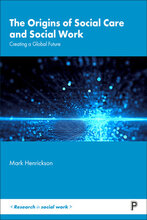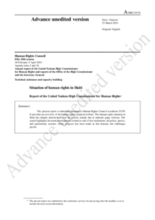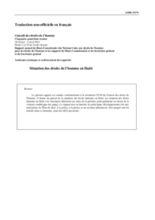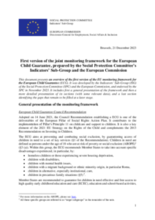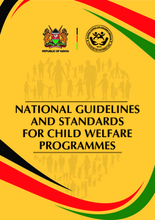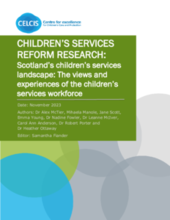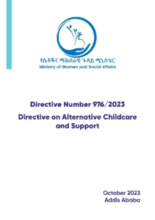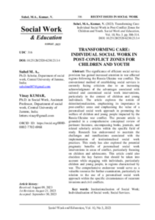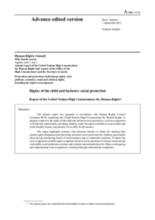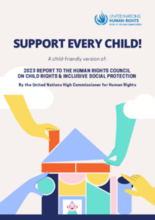Displaying 1 - 10 of 454
Bringing together interdisciplinary scholarship, Mark Henrickson argues that it is essential to understand and critique social work’s origins in order to work out what to retain and what must change if we are to achieve the vision of a truly global profession.
This report provides an overview of the human rights situation in Haiti which has sharply deteriorated over the period, mainly due to endemic gang violence. The report highlights the main developments related to rule of law institutions, the police, justice, and penitentiary systems.
Le présent rapport est soumis conformément à la résolution 52/39 du Conseil des droits de l'homme. Il donne un aperçu de la situation des droits humains en Haïti. La situation des droits humains en Haïti s'est fortement détériorée au cours de la période, principalement en raison de la violence endémique des gangs. Le rapport met en lumière les principaux développements liés aux institutions de l'État de droit, à la police, à la justice et au système pénitencier. Des progrès ont été réalisés dans ce domaine, mais des défis persistent.
This document presents an overview of the first version of the EU monitoring framework for the European Child Guarantee (ECG). It was developed by the Indicators’ Sub-Group (ISG) of the Social Protection Committee (SPC) and the European Commission, and endorsed by the SPC in November 2023.
These guidelines provide minimum standards to be adhered to in the provision of Child Welfare Programmes; The guidelines will also provide a framework within which state and non-state actors shall develop, design, and implement childcare and welfare programmes to enhance child rights, strengthen family and community-based care.
This report explores, through responses to an online survey, interviews and focus groups, the opportunities, challenges, barriers and facilitators that members of the workforce identify as factors which bring about high quality experiences and outcomes for children, young people and families using services; close multi-agency working between practitioners across different services; continuity of support when young people transition to adult services; high quality support for the workforce and transformational change in services.
Recognizing the increasing number of orphans and vulnerable children (OVC) and the need to provide standardized and quality alternative childcare and support services, The Ministry of Women and Social Affairs (MOWSA) in collaboration with pertinen
The article explores the notion of deinstitutionalization, emphasising its importance in post-conflict areas and emphasising the value of a personalised social work approach in promoting the welfare of children and young people impacted by the Russia-Ukraine war conflict.
The present report was prepared in accordance with Human Rights Council resolution 49/20, requesting the United Nations High Commissioner for Human Rights: to prepare a report on the rights of the child and inclusive social protection, in close co
The OHCHR submitted the first-ever child-friendly report, conducted with over 600+ child participants worldwide. The premise of this report is based on children's right to social support. Most children cannot access social aid and protection and, therefore, cannot access their other rights.

